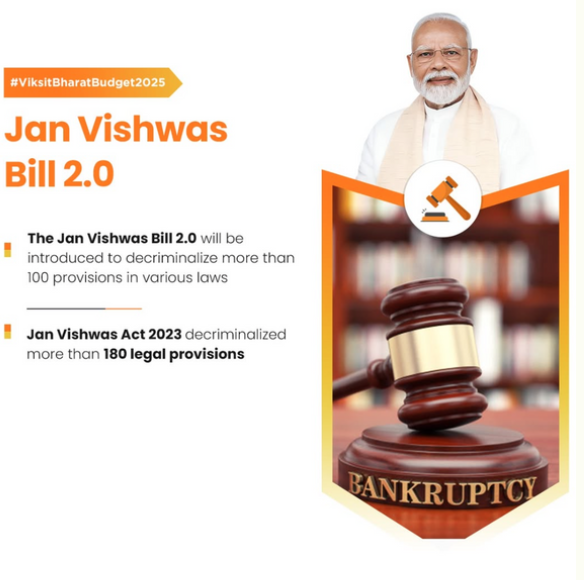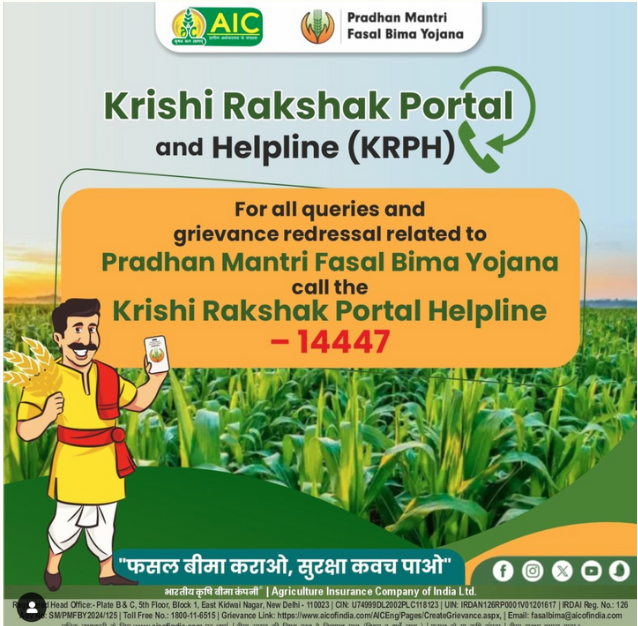Daily Current Affairs | March 12 2025 |
Important Topics from Current Affairs 1) Jan Vishwas 2.0 2) Krishi Rakshak Portal 3) AAHAR 2025 4) New Immigration Law 5) Soil Health and Fertility Scheme
Jumbo IAS
3/12/20254 min read
1) Jan Vishwas 2.0
Despite concerted efforts to combat corruption, red-tapism & bribery remain formidable barriers to business growth in India.
A recent “India Business Corruption Survey 2024” presents a troubling picture : 66% of business entities admit to paying bribes, with 54% stating they were coerced to expedite government processes, obtain permits, ensure compliance, or acquire duplicate licences.


Problem with Rigidity
DPIIT is working on about 100 rules & laws of various departments to bring Jan Vishwas 2.0 bill to achieve a greater ease of doing business environment in the country.
To support the “Make in India” initiative, the Govt. had enacted the Jan Vishwas (Amendment of Provisions) Act, 2023.
With objective of decriminalising minor offences across 42 Central Acts, the Act eliminates 183 criminal provisions across 19 Ministries/ Departments.
Economic Consequences of Regulatory Burden
Increased Cost of Doing Business - Forced bribes increase compliance and operational costs for businesses.
Adverse Impact on MSMEs & Start-ups - Startups & MSMEs struggle to navigate complex regulations, delaying permits and increasing costs, limiting their ability to scale.
Investor Confidence & Damage to ‘Make in India’ - India’s reputation as a complex regulatory environment discourages long-term foreign investment, limiting the benefits of initiatives like Make in India.
Brain Drain - Burdensome regulations are driving Indian start-
ups to relocate to more business-friendly nations.
Other Reforms by Government
‘One Nation, One Business’ Identity System - 23 identifiers (such as PAN, GSTIN, and CIN) have been consolidated into a unified identity system.
DigiLocker for Businesses - A tamper-proof document repository where businesses can upload verified documents reducing opportunities for corruption in approval processes.
FSSAI’s Annual Update Model - Food label regulatory changes would now be made once a year, improving compliance.
2) Krishi Rakshak Portal
To improve the implementation of Pradhan Mantri Fasal Bima Yojana (PMFBY) and Restructured Weather Based Crop Insurance Scheme (RWBCIS), Govt. has established Krishi Rakshak Portal and Helpline (KRPH), for grievance redressal.
A single Pan-India toll free number 14447 has been deployed and linked to the insurance companies database, where farmers can raise their grievances/issues.


About PMKSY
An Insurance programme introduced in the country from Kharif 2016 season, available for all States/UTs and is voluntary for the States as well as farmers.
At present, 23 States/UTs are implementing the scheme.
The scheme provides uniform premium for Kharif(2%), Rabi(1.5%) and Commercial crops(5%), along with tech support for faster claim settlement & grievance redressal.
Digital Support for Farmers
Krishi Rakshak Portal and Helpline (KRPH) - This platform provides multilingual support, enabling transparent communication and real-time resolution of grievances related to compensation delays and insurance queries.
Learning Management System (LMS) Platform - Provides stakeholders, including farmers, insurance companies, Government officials, state Government representatives, and participants in PMFBY, with the essential skills and knowledge needed for efficient crop insurance and agricultural credit.
Agri-Insurance Sandbox Framework Platform SARTHI - Recognising the multifaceted risks faced by farmers beyond crop losses, this digital insurance platform provides coverage to health, life, home, shop, agriculture implements, motor, and parametric products.
3) AAHAR 2025
Agricultural and Processed Food Products Export Development Authority(APEDA) showcases India's agricultural and processed food excellence at 39th edition of AAHAR 2025.
It was organised by India Trade Promotion Organisation (ITPO) from 4th to 8th March at Bharat Mandapam, New Delhi.
95 exhibitors from 17 States and UTs participated in this event.


About APEDA
It is a statutory body, established under APEDA Act 1985, that functions under Ministry Commerce & Industry, with its headquarters in New Delhi.
Chairperson and members are appointed by Govt. of India, with its advisory board having members from diverse fields.
Functions - Export promotion & development; Quality standardisation & certification; financial incentives & support for exporters etc.
4) New Immigration Law
Minister of State for Home Affairs introduced the Immigration and Foreigners Bill, 2025.
The bill proposes an overhaul of India’s immigration laws.
Objective - Enhance national security, control immigration procedures and introduce stricter penalties on foreigners who violate entry and stay conditions.
About the Bill
Replaces Old Laws - Foreigners Act 1946; Passport(Entry into India) Act, 1920; Registration of. Foreigners Act, 1939; Immigration(Carrier’s Liability) Act, 2000.
Centralised Tracking - Introduces digital tracking of foreigners, ensuring real-time immigration data.
No Appeal Mechanism against Immigration Officer’s decision.
Simplification - Eliminates redundant and outdated provisions from pre Constitution laws.
5) Soil Health & Fertility Scheme
Soil & Land Use Survey of India (SLUSI), under Department of Agriculture & Farmers’ Welfare is generating of district/village-wise digital soil fertility maps through geo-spatial techniques using Soil Health Card (SHC) data.
Soil Health Cards are generated under Soil Health & Fertility Scheme of Government of India.


About the Scheme
Introduced in 2015 at Suratgarh, Rajasthan to assist State Governments to issue soil health cards to all farmers in the country.
It set up Village level Soil Testing Labs and Soil Health Card Portal to facilitate generation of SHCs in a uniform and standardised format.
Soil Health Cards contains soil status based on 12 parameters - 4 Macronutrients(N,P,K,S); 4 Micronutrients; pH; Organic Carbon; Electrical Conductivity.
It was later merged with RKVY.
Soil Fertility Mapping
Soil fertility maps have been generated for 351 villages across 34 districts in Maharashtra by SLUSI.
Soil fertility maps provide location-specific data, allowing farmers to apply fertilizers more efficiently, avoiding overuse or underuse.
Soil & Land Use Survey of India (SLUSI) generates digital soil fertility maps using geo-spatial techniques and Soil Health Card (SHC) data.
Benefits - Fertiliser use efficiency, reduces wastage & cost, eases fertiliser subsidy burden on the government, promotes sustainable agriculture, and aids precision agriculture.


